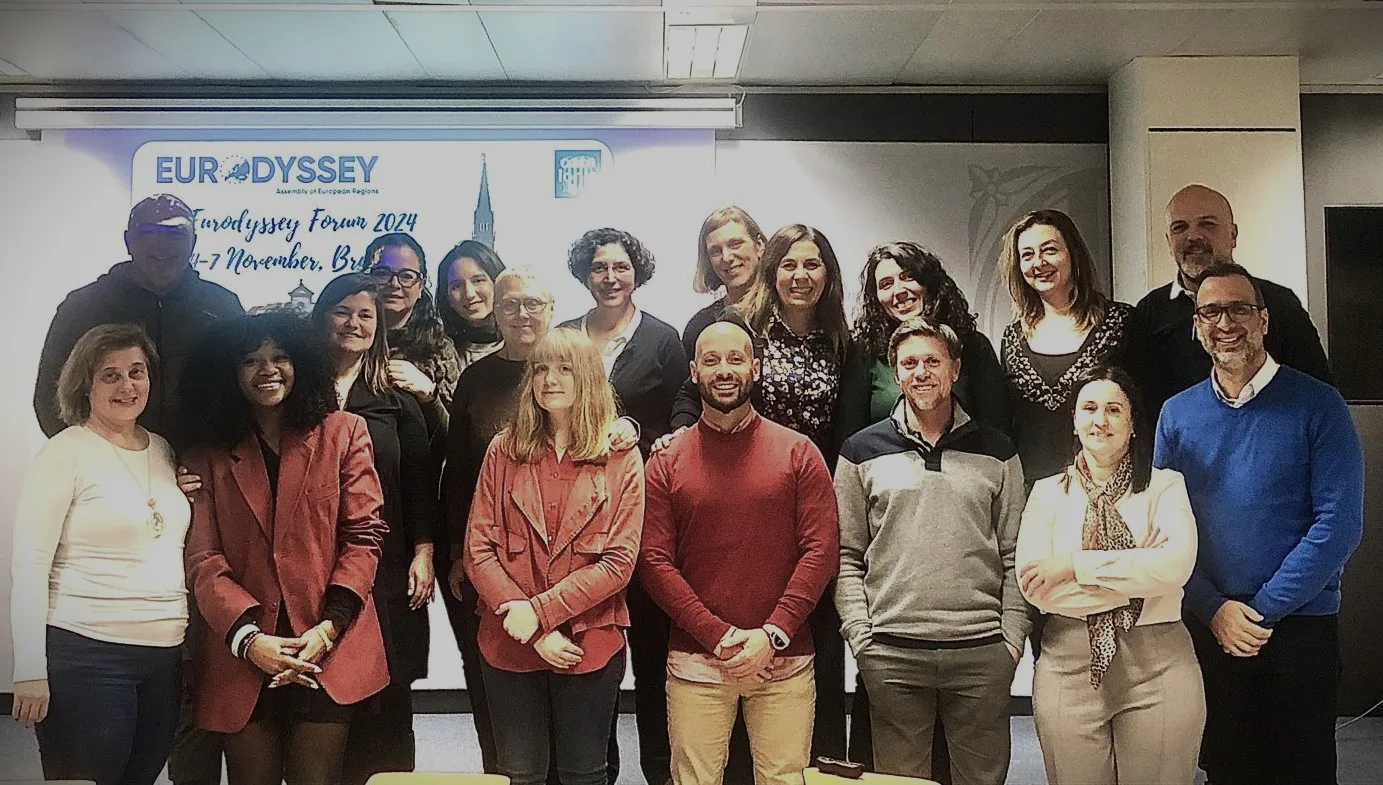On 5-7 November, the Eurodyssey Forum 2024 took place in Brussels, Belgium, at the Delegation of the Government of Catalonia to the European Union. Focused on peer-learning, capacity-building workshops, exchanges of good practices, and community building, this Forum brought together Eurodyssey correspondents and coordinators from the regions participating in the programme, as the yearly opportunity to meet and work together in person.
A resilient, committed and united community brought together
The Eurodyssey programme has existed since 1985, its membership has evolved across the past 39 years (new regions joined the programme, others left it, others came back), it faced the COVID19 pandemic (with lockdowns and travel restrictions preventing many Eurodyssey traineeships to happen), it welcomed new colleagues across regions and bade farewell to others… Still, the Eurodyssey programme and its community remain, have proven their resilience, and gather every year in person at the Eurodyssey Forum.
This year, the Forum took place in Brussels, at the representation office of one of the founding member regions of Eurodyssey (and of the AER): Catalonia. The Eurodyssey correspondents (this is how we call the civil servants managing the Eurodyssey programme in their respective regions, in employment and youth departments mostly) were warmly welcomed by Catalan representatives, namely Susana Díaz, Deputy Director of the Public Employment Service of Catalonia (managing the Eurodyssey programme in the region), and Ester Borràs, recently appointed as the Representative of the Government of Catalonia to the EU. The AER’s new Secretary General, Vania Freitas, also valued the programme’s significance within the AER, whether in terms of history, values, mission, principles and community building across regions.
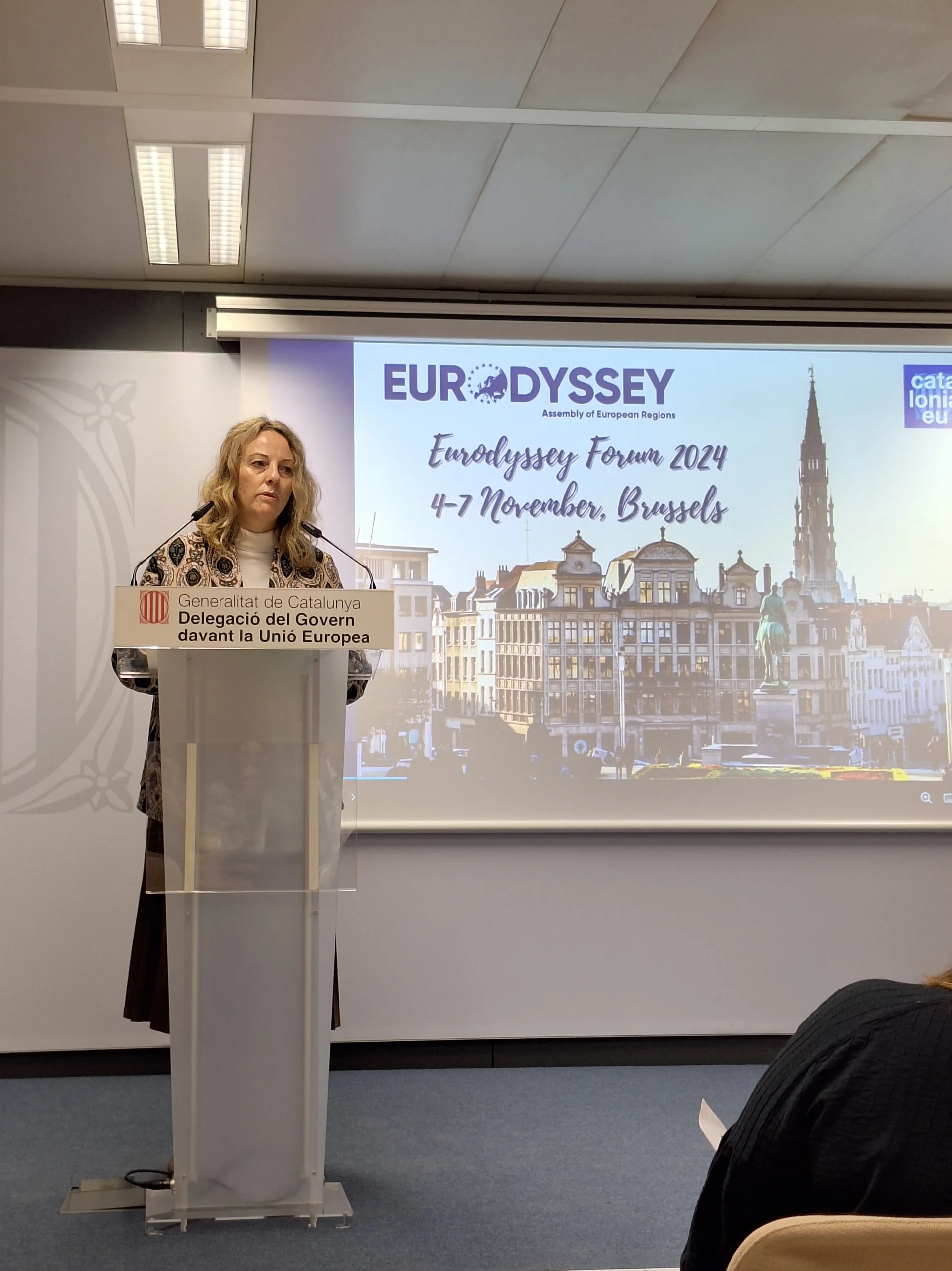
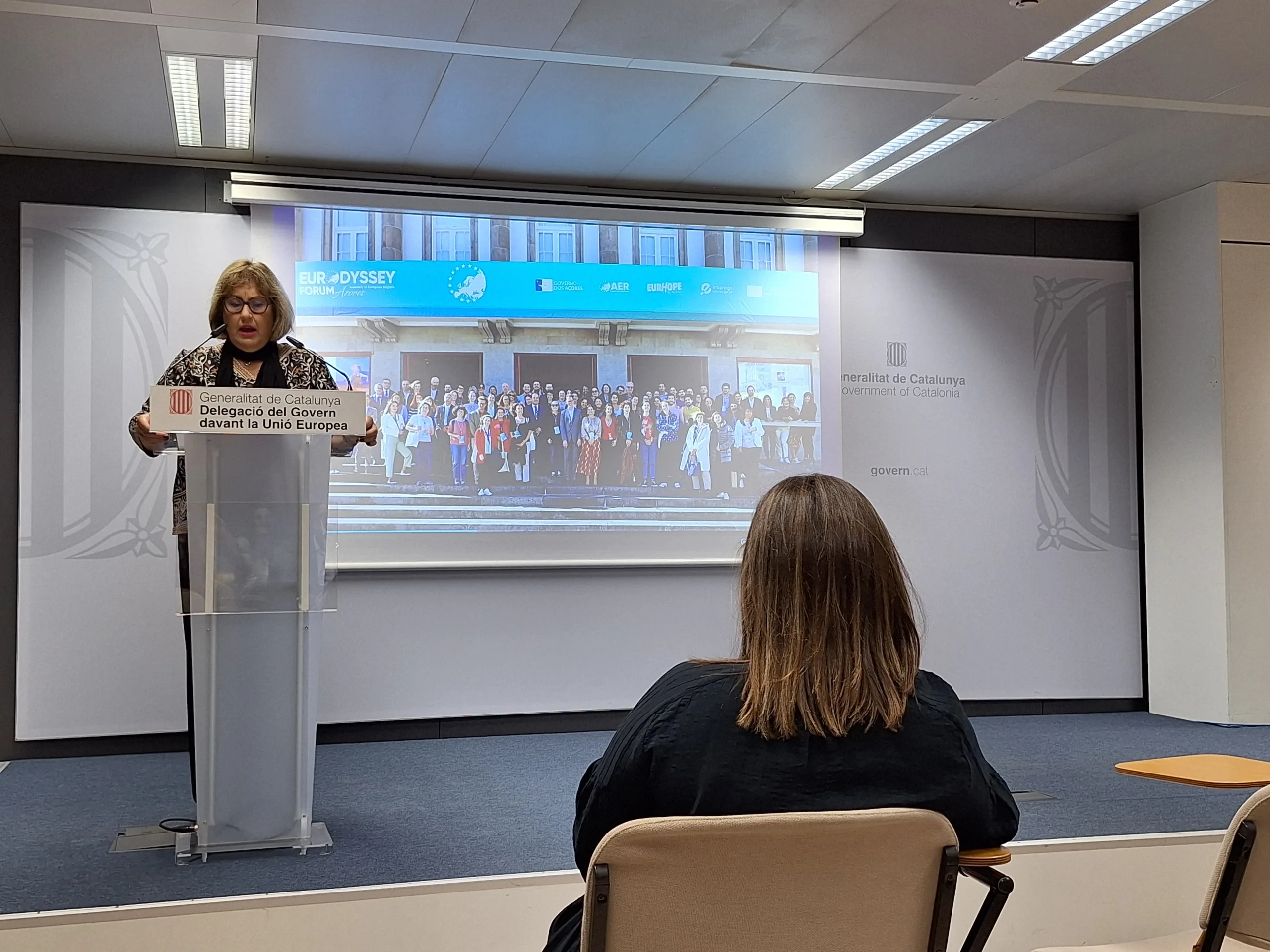
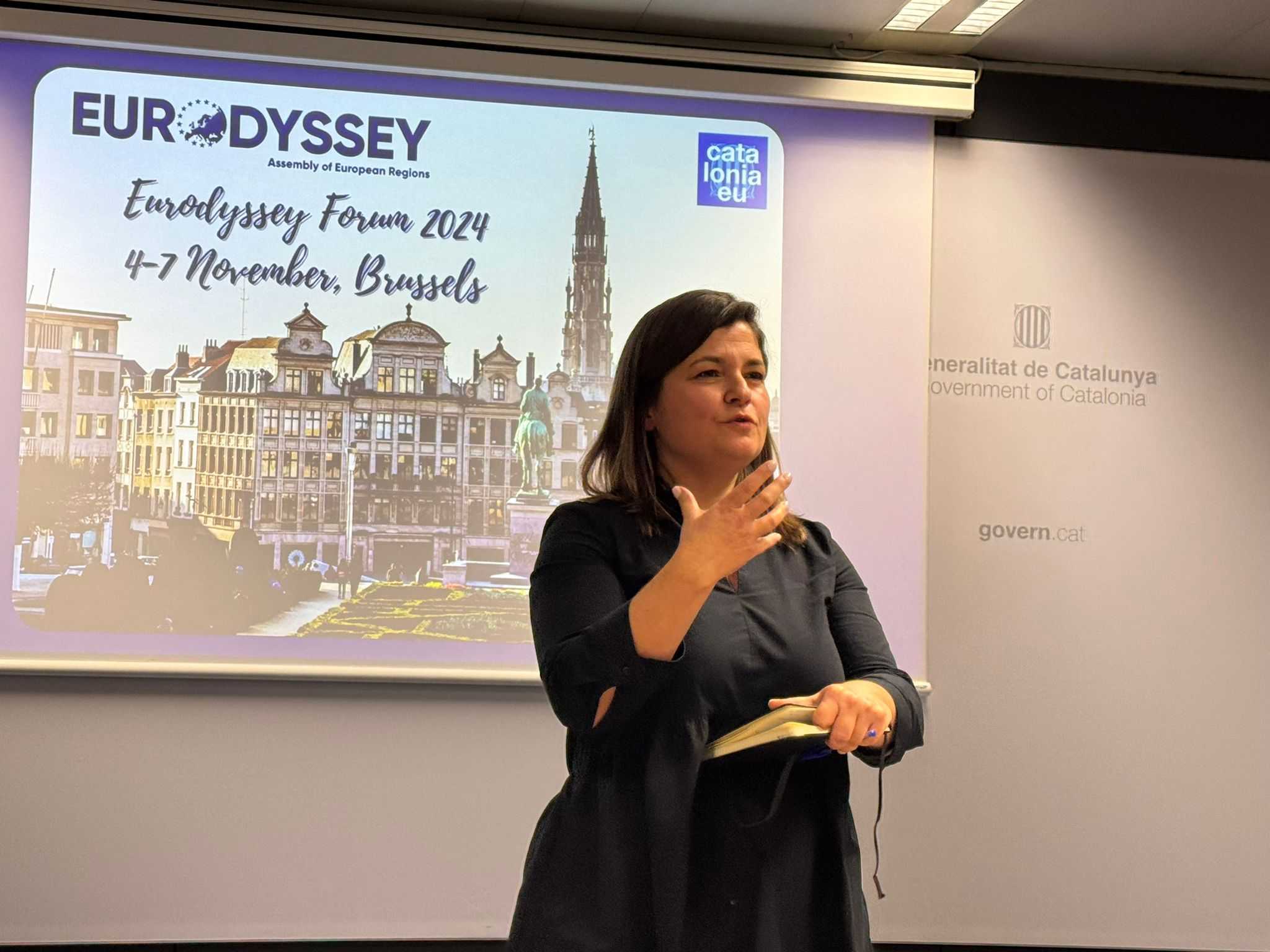
We also took a moment for each Eurodyssey correspondent present in the room to introduce themselves and say in a few words what Eurodyssey means to them, and why they believe in it. The answers featured, among other things, empowering youth, providing young people with an employment opportunity and seeing them grow and change throughout the experience, meeting and working with peers from across Europe, making friends as well, building a community, getting to know other regions, cultures and practices, and supporting local companies in need of a young workforce.
Capacity-building, peer-learning and mutual understanding: key to a successful inter-regional and international mobility programme
Explaining what Eurodyssey is in a couple of sentences is easy. It is a youth mobility programme, providing quality paid traineeships to young people from the participating regions. It is managed entirely at regional level, meaning that the regions have the hand on the management of the programme (hosting and sending trainees, selecting companies, organising language training and cultural activities), handled directly by their regional administration or delegated to a managing body in the region.
Now, what does the job consist of? What does a Eurodyssey correspondent do? What are their day-to-day tasks? How do they work and communicate together, given that they are based in different regions and countries, and depend from one another to host and send trainees? What are the good practices and tools at their disposal? What makes a quality traineeship? How to communicate with the companies, with the young people, and with the correspondents in other regions? How to promote the programme and increse its outreach and participants? How to fill in as many traineeship offers as possible and find candidates? What are the challenges and difficulties, and how do we solve them?
The workshops addressed these questions, with the correspondents engaging in fruitful discussions, sharing of experience and of advice, exchanging best practices and flagging their main challenges. The workshops especially put in practice the methods of co-development and of the reverse scenario, and made the participants work in small groups, giving them enough time and space to share their experience, practices from their region, provide advice and support as well. This peer-learning and capacity-building workshops led to an increased understanding of the specific situations, frameworks and challenges that one region may experience, while other regions have a different system. When it comes to external communications and promotion, it also allowed the correspondents to brainstorm on how to increase the programme’s outreach towards young people, companies and potential partners (or “allies”) in their regions. In the end, the correspondents could bring home practices and methods from other regions, to replicate or adapt in their own, as well as new ideas and contacts for the programme’s outreach.
Among the next steps, the correspondents will work together on an updated traineeship quality charter, to increase the understanding of what a quality traineeship entails for a region, for the young people, and for the companies.
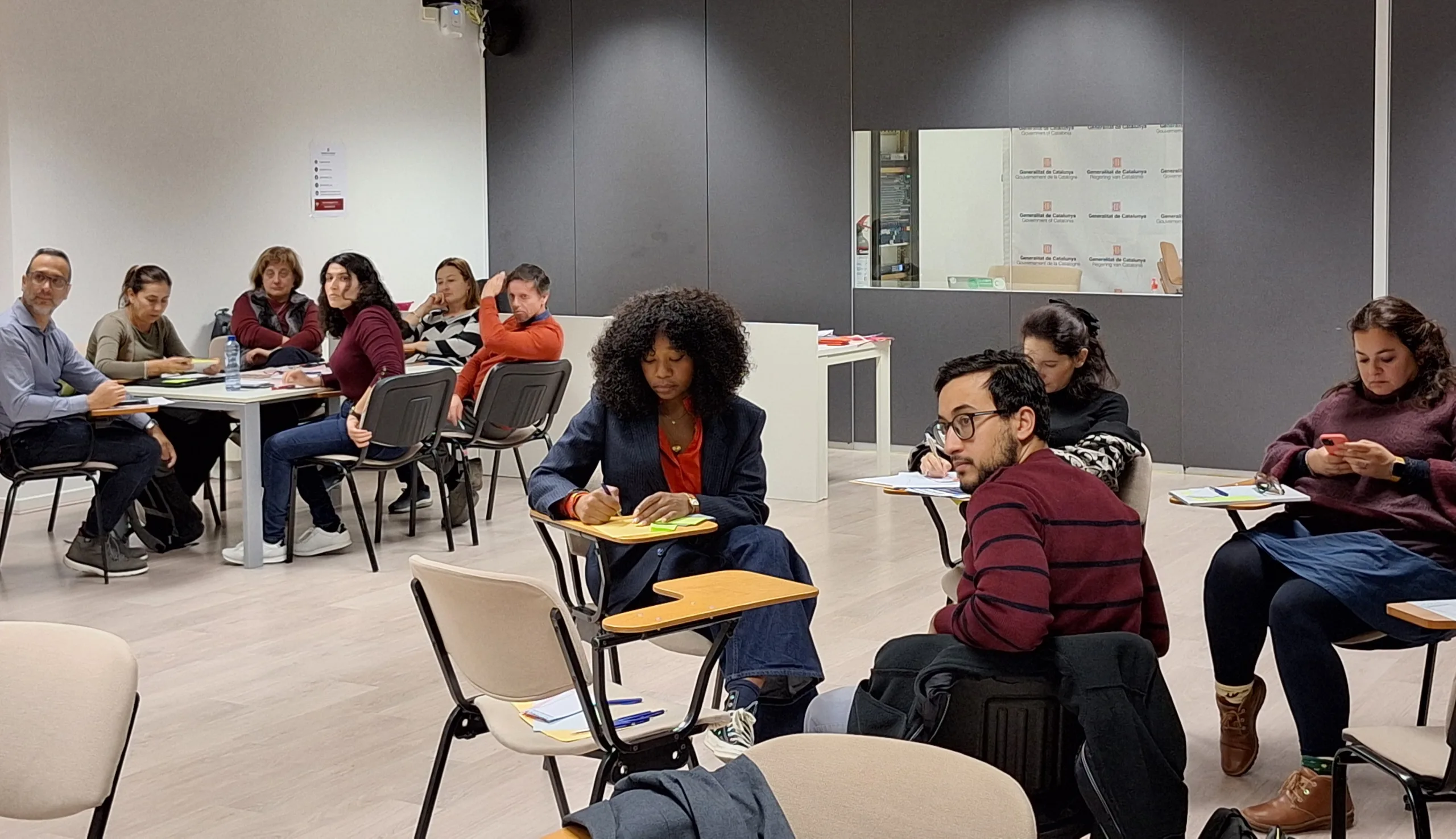
Learning about a region, its strengths, its culture: a core element of the Eurodyssey Forum
Improving mutual understanding and building a community doesn’t only go through workshops and training. It also goes through discovering a region with one’s own eyes, knowing more about its projects, its strengths, its assets, its culture and history. With this in mind, the Eurodyssey correspondents in Brussels-Capital Region, and the AER Secretariat based in Brussels, came up with a cultural programme to enrich the event. Brussels International / SPRB brought a group to an ERDF Study Visit, for participants to discover the projects funded by the European Regional Development Fund in Brussels-Capital, revolving around the topics of green mobility, recyclability, urban green infrastructe and circular economy. Meanwhile, another group visited the European Parliament Hemicycle in Brussels. After this “Brussels and the EU” thematic activities, two local guides embarked the groups in a “Bruxelles ma belle” discovery, walking through and learning about the Art Nouveau architecture in the streets of Ixelles and Saint-Gilles, while another group followed the Comic Strip trail of the Belgian bande dessinée in the centre of Brussels.
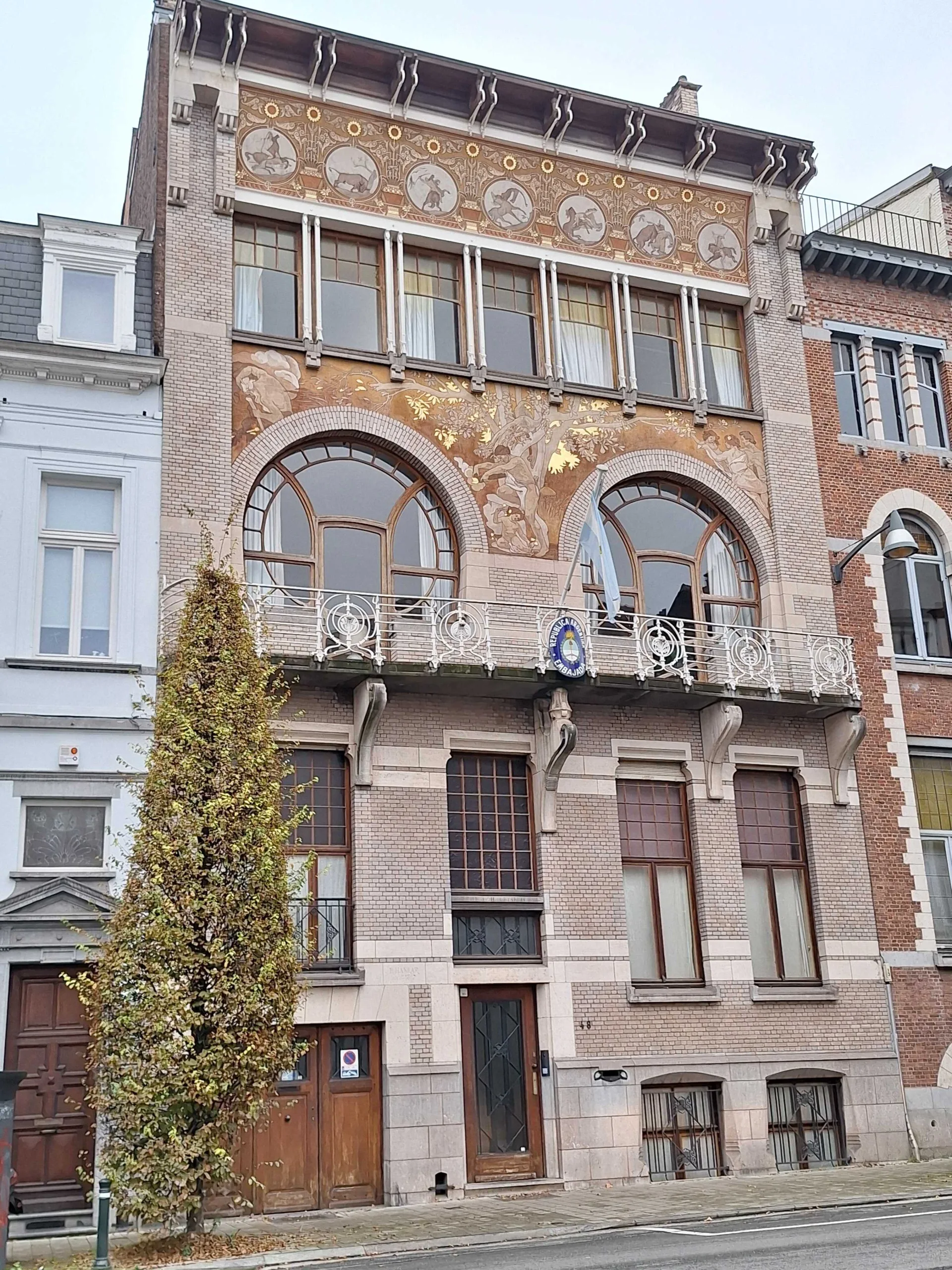
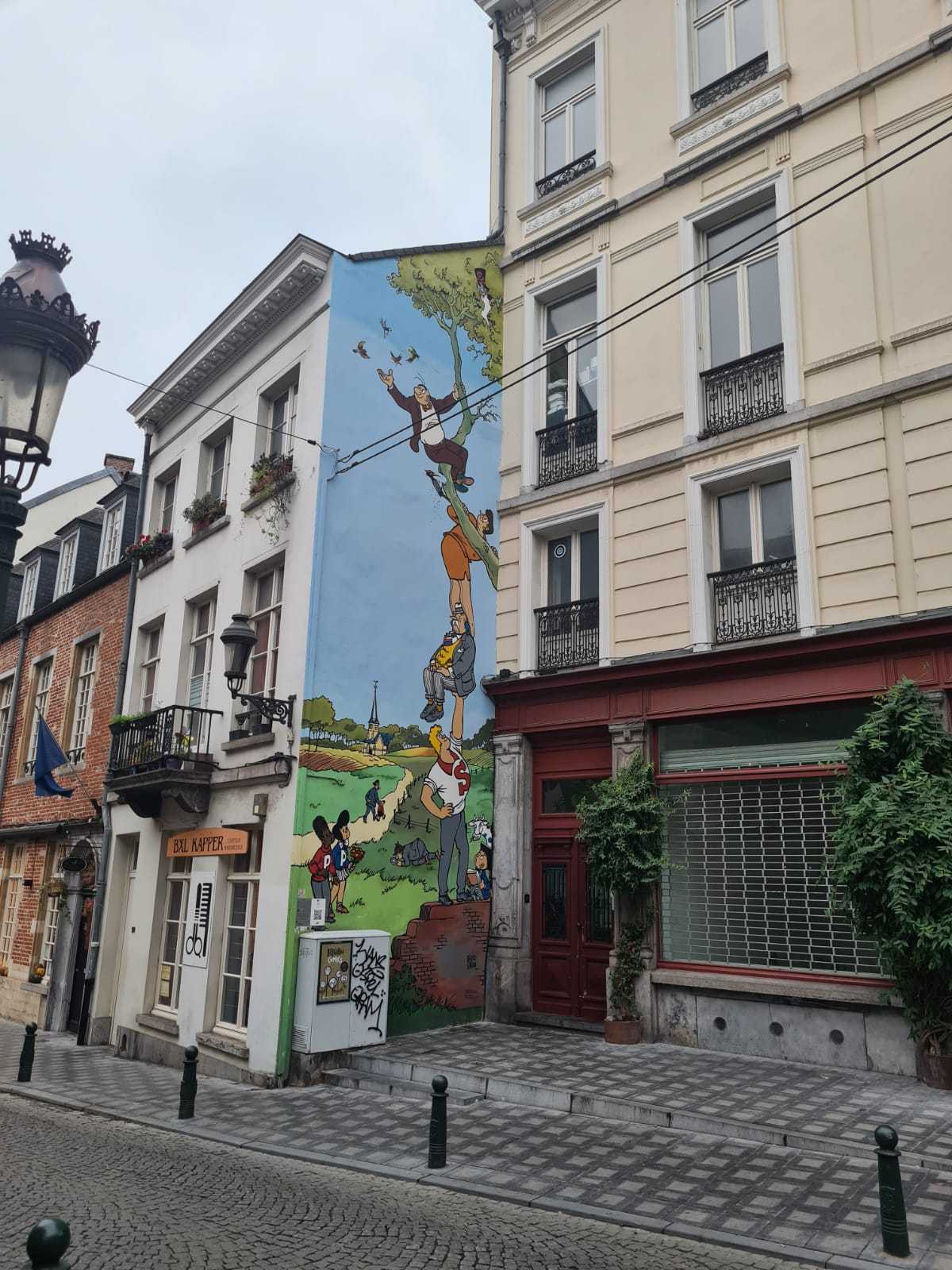
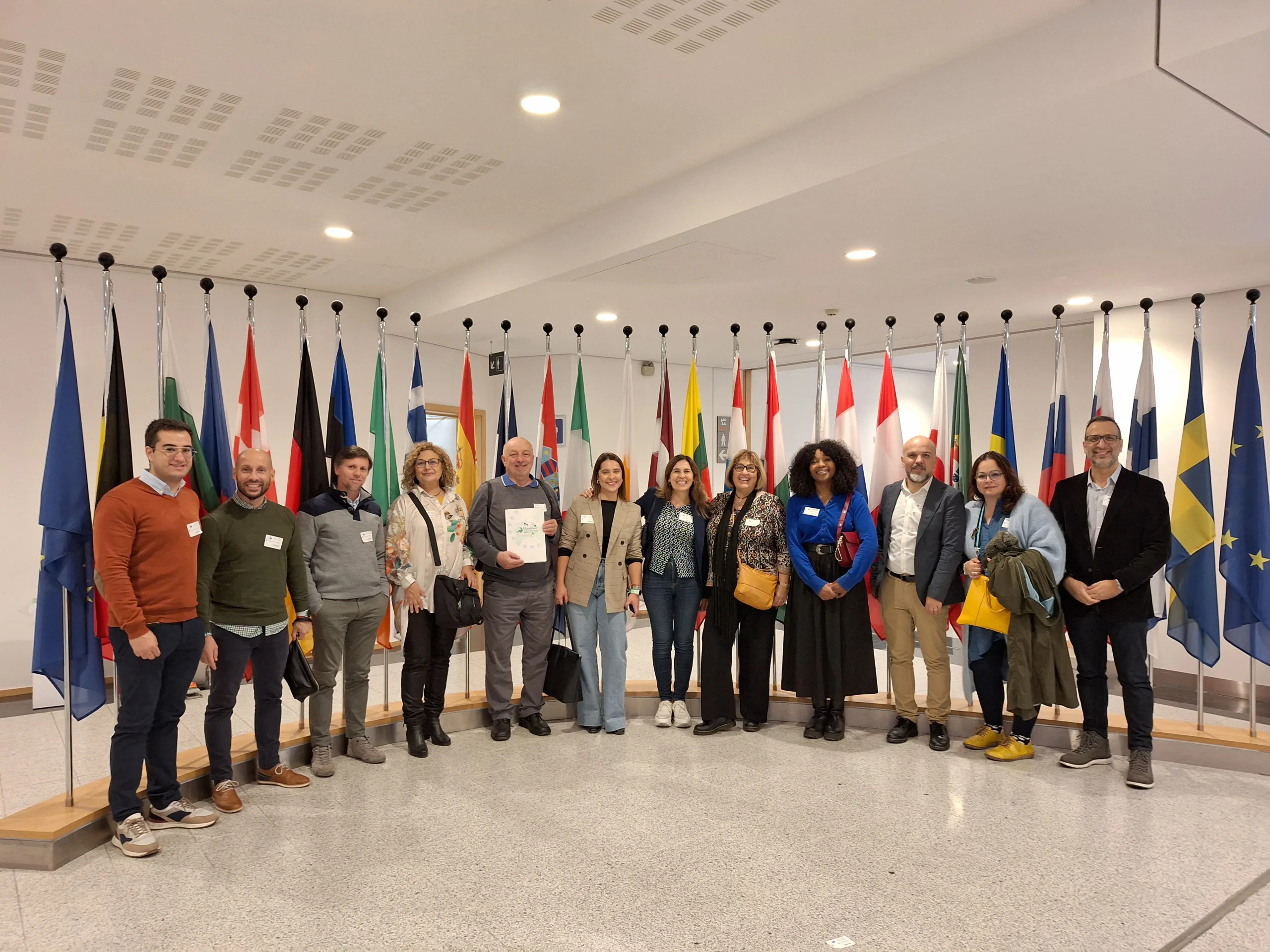
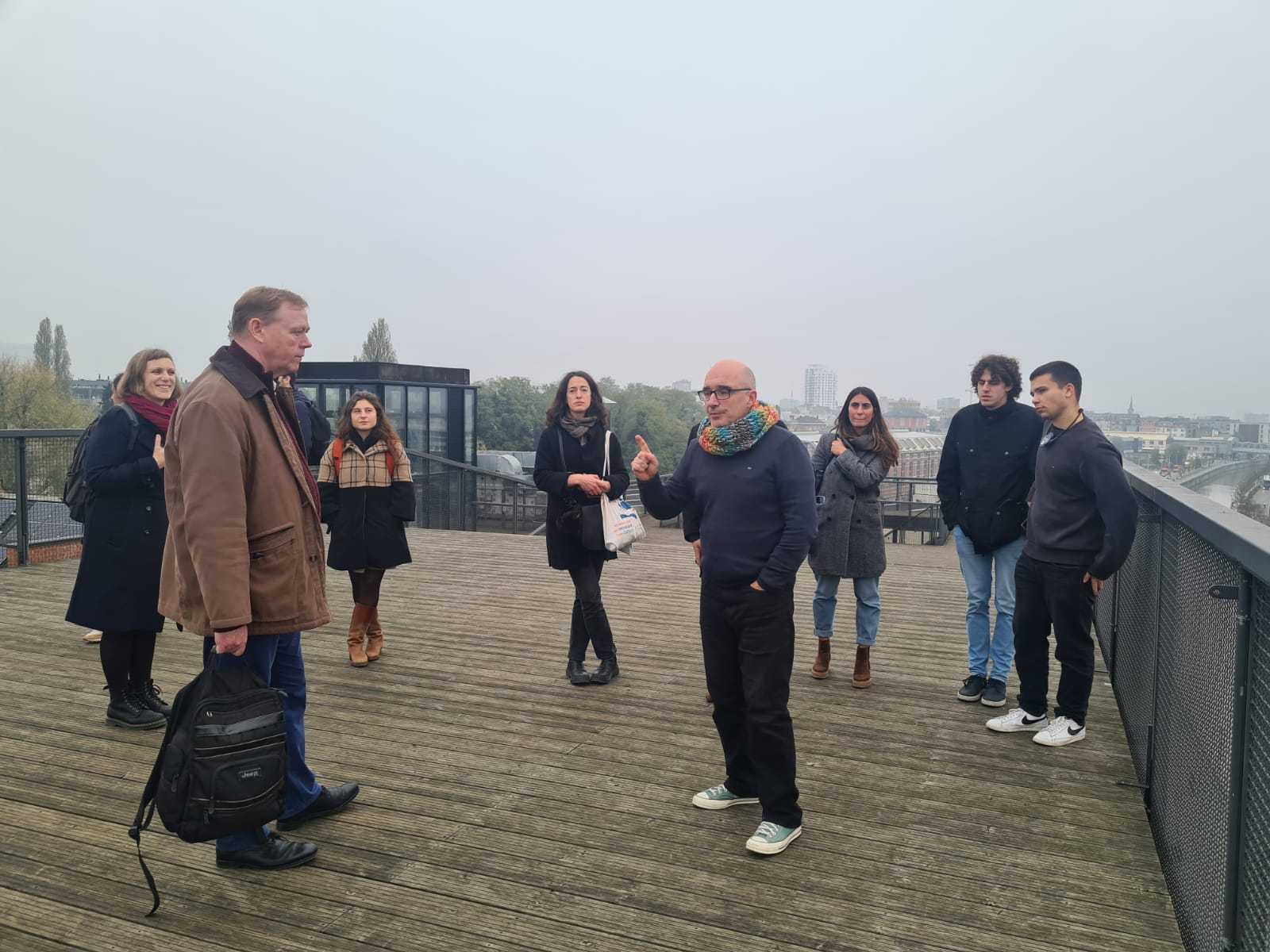
Looking forward: the 40th anniversary in 2025
The event concluded with ideas and wished for the 40th anniversary of Eurodyssey as part of the Assembly of European Regions’, to showcase the programme’s history, successes, and stories. The ideas included video capsules, testimonies from past and present participants and regions, developing an alumni spirit in the programme, reminding about its history, founders and evolution. Esther Estany, Eurodyssey President, invited all participating regions to join the Eurodyssey Forum 2025, with as many correspondents as pobbile, to celebrate this milestone.
The AER and Eurodyssey will unveil stories throughout 2025 to celebrate their 40th anniversary: make sure to follow our channels to not miss out!
